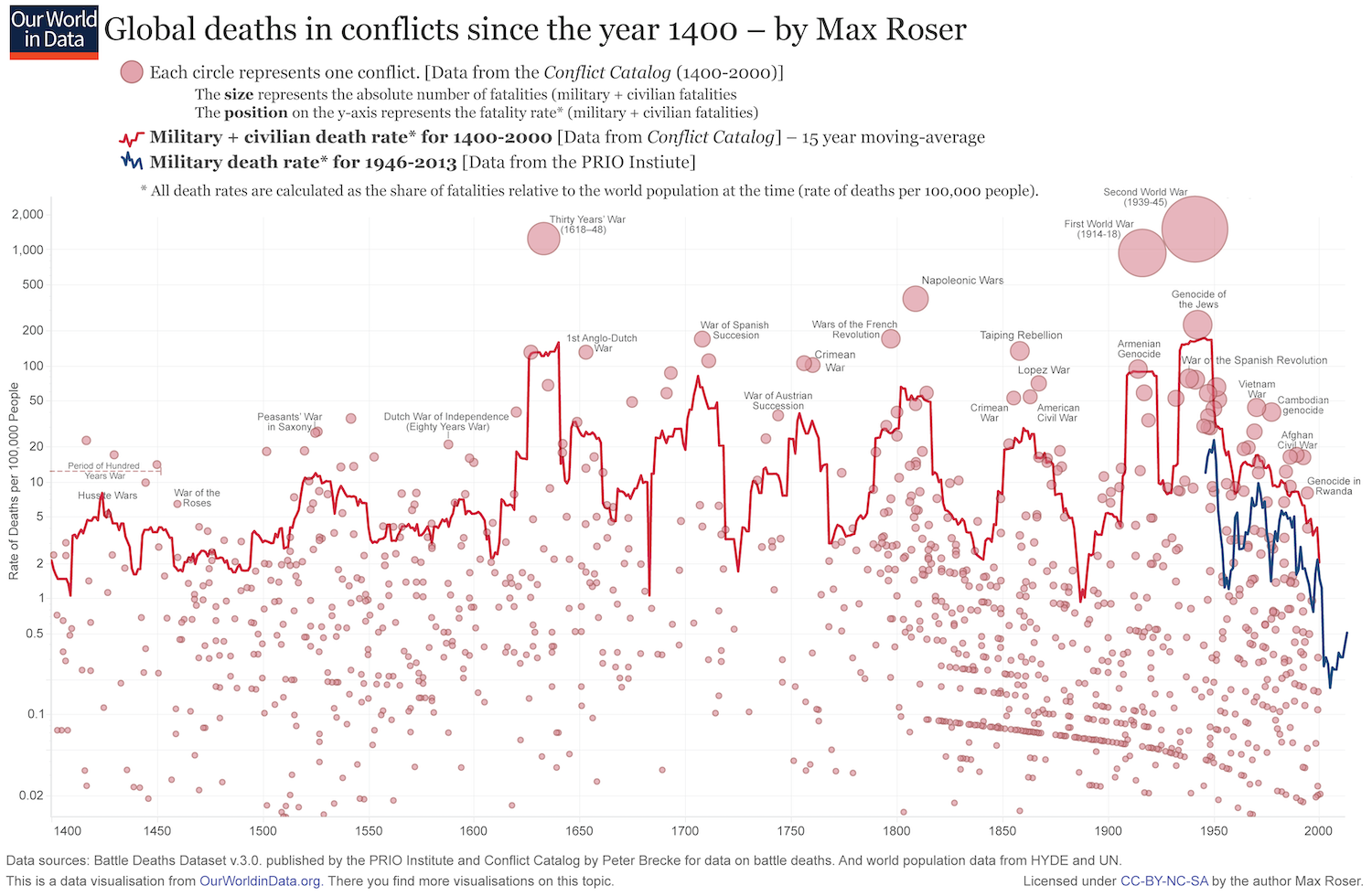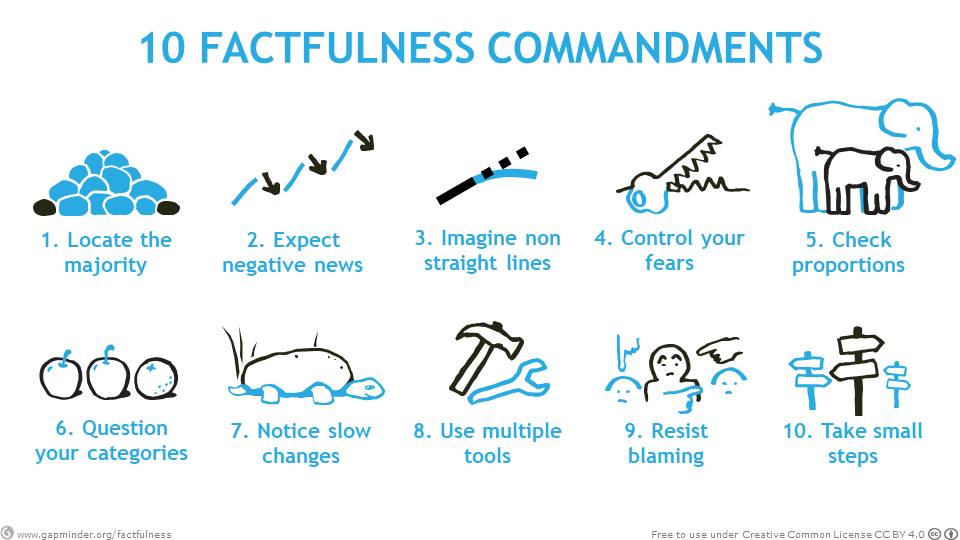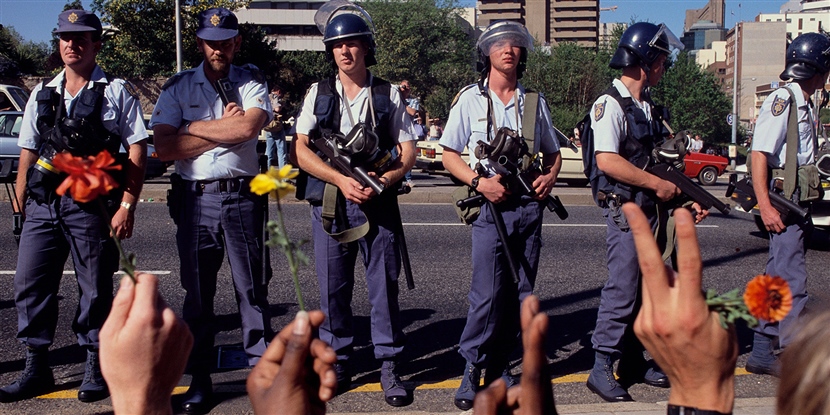By Trevor Getz, OER Project Team
California, USA
Like most “world” historians, I was trained as an area studies specialist. In my case, I’m a historian of Africa. Although most of the courses I now offer are about the global past, history education, and comics, I still teach a course on modern African history pretty much every spring. For 20 years, however, I have struggled with how to end this course. Having spent 14 weeks navigating the transatlantic slaving system, colonialism, the Cold War, development economics, decolonization, and the end of apartheid, I come to the last week of class scratching my head about how to answer one big remaining question students inevitably have: Are things getting better or worse for Africans?
A similar question could be asked at the end of a Big History or world history course. On the one hand, one of our last topics in this course is the gloom (and possibly doom) of the Anthropocene: climate change, pollution, and the devastation of our natural environment. This year, we also have to discuss the pandemic, and the possibility that all our much-vaunted connectivity may be doing nothing more than exposing us to waves of disease that can move around the world faster than ever before. Meanwhile, simmering in the background are nuclear proliferation, ongoing conflicts and imminent genocides, and vast inequality. Closer to home, for many of our students, life outside the classroom doesn’t seem to be getting better at all. In the community I share with my students, for example, there are growing settlements of unhoused people living in tents and camper vans; diminishing levels of student aid; and attacks on members of minoritized communities.
 Is global conflict decreasing? That seems to be the conclusion from this Our World in Data chart, which students can analyze in the War and Violence Data Exploration in Project X. Explore this chart in depth at https://slides.ourworldindata.org/war-and-violence/#/6. By Our World in Data, CC BY 4.0
Is global conflict decreasing? That seems to be the conclusion from this Our World in Data chart, which students can analyze in the War and Violence Data Exploration in Project X. Explore this chart in depth at https://slides.ourworldindata.org/war-and-violence/#/6. By Our World in Data, CC BY 4.0
Students have to weigh this evidence against a raft of data suggesting that, actually, things are generally getting better. A lot of this data shows up in Project X. For the most part, wars are getting more rare and less deadly. Despite some stumbles in recent years, the global political trend over the last century has been toward democracy. Life expectancy has increased dramatically and is still trending upwards in the most densely populated parts of the world. And while globalization enables diseases to move more rapidly—and has many other downsides—it has also helped to make us a single global community that is arguably more prosperous, overall, than ever before.
And Africa? As I tell my students, many Americans have a poor understanding of the African situation. While much of the world’s poverty remains concentrated in Africa, it is also a continent with a fast-growing middle class (the fastest in the world), a continent that holds immense brain power and human resources. Literacy rates, life expectancy, and political stability have all improved dramatically since the 1980s. Moreover, the research behind the COVID-19 vaccines has given a boost to the development of vaccines against malaria, a disease that historically has killed millions. Many African countries have developed social systems and behaviors to combat COVID that Americans would do well to emulate, even as the wealthier world withholds vaccines from this poorer continent. There are reasons to be Afro-optimistic, even as we acknowledge ongoing challenges.
So are things getting better or worse? Well, to borrow from Rob Wijnberg: “The great paradox of our time: everything is both better and worse than ever before.[1]
So I’m actually not writing this blog (or teaching my class) to push a particular perspective on the question of whether things are getting better or worse. Rather, I’m here to convince you that you should talk about this question in the classroom, and to share some ideas about how you might do it. You see, humans generally aren’t very good at perceiving whether things are getting better or not. In the World History Project course, students learn that this was true even back when societies first began to decide whether to transition from foraging to farming! It’s still a challenge today, as Hans Rosling and his associates show in the book Factfulness: Ten Reasons We’re Wrong About the World—and Why Things Are Better Than You Think.[2] Rosling shows that to understand what’s really going on, we should use 10 practices to find and identify the evidence and to check our instincts. These include checking proportions, noticing slow changes, and avoiding generalizations.

Hans Rosling’s 10 factfulness commandments. From gapminder.com, CC-BY 4.0
And in many ways, that’s precisely what the OER Project is built to do. We try to teach students to evaluate claims about the past, and to make them usable for understanding the present and preparing for the future (see this blog by Bob Bain). They can only do that if they study the evidence the past has given and use it to understand where we’ve been and where we’re going. Project X is specifically designed to help students use quantitative data in this way, whereas the final units of BHP (The Future) and WHP (Origins and 1750 courses) are designed to help students use qualitative evidence to understand what’s going on.
If you can guide your students to a shared discussion about whether the evidence shows that things are getting better or worse—either by using Project X or by looking at long trends in BHP or WHP—they can take the next step: figuring out how to emphasize and support the positive trends, and how to derive solutions to deal with the negative ones. That kind of conclusion would make for a pretty powerful history class, don’t you agree?
Looking for more? Join us in the OER Project Community today! And if you aren’t registered with us yet, create an account here for free access to the OER Project Community and more.
[1] https://thecorrespondent.com/104/the-great-paradox-of-our-time-everything-is-both-better-and-worse-than-ever-before/2426955960-94b74ae9
[2] Hans Rossling, Anna Rosling Ronnlund, and Ola Rosling, Factfulness: Ten Reasons We’re Wrong About the World – and Why Things Are Better Than You Think, New York: Flatiron Books, 2018.
About the author: Trevor Getz is a professor of African history at San Francisco State University. He has written 11 books on African and world history, including Abina and the Important Men. He is also the author of A Primer for Teaching African History, which explores questions about how we should teach the history of Africa in high school and university classes.
Cover image: White Johannesburg riot police threaten anti-apartheid student protesters at the University of Witwatersrand who are holding flowers and flashing peace signs. © Louise Gubb / Getty Images.
 For full access to all OER Project resources AND our amazing teacher community,
For full access to all OER Project resources AND our amazing teacher community, 
Top Comments